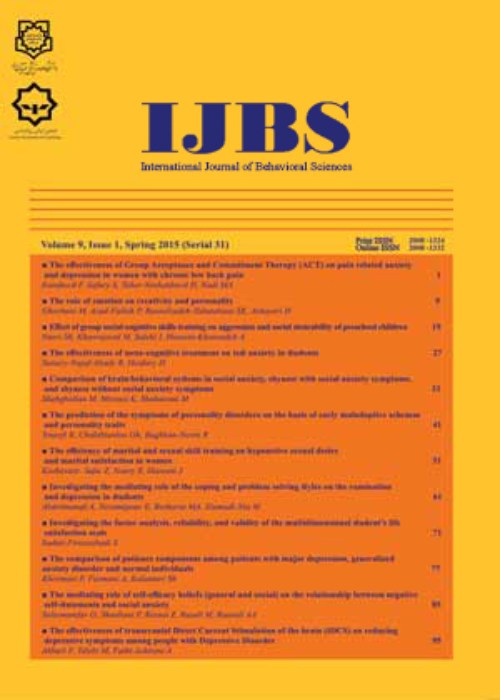Prediction of Imposter Syndrome in Gifted Female Students based on Ego Development, Self-efficacy, and Self-awareness
Imposter Syndrome (IS) is loosely defined as doubting your abilities and feeling like a fraud. It disproportionately affects high-achieving people, who find it difficult to accept their accomplishments. This research was conducted in order to predict the IS in gifted students based on ego development, self-efficacy, and self-awareness.
The research was descriptive and correlational. All gifted students studying in middle schools in central Islamabad in the academic year 2020-2021 formed the statistical population of this research. For this purpose, 202 students were selected using the cluster sampling method and used the IS Questionnaire (Clans and Ames, 1978), the Ego Development Questionnaire (Markstrom et al., 1997), the Psychological Capital Questionnaire (Luthans et al., 2007), and the Spirituality Questionnaire (Donning and Parsian, 2009). The collected data were analyzed by SPSS version 26 and the significance level was considered 0.05.
The results of Pearson's correlation coefficient showed that there was a negative and significant relationship between self-efficacy and spiritual-health scores with IS in female students at the level of 0.05. Moreover, the regression analysis with the simultaneous entry method showed that the predictor variables together explained 43% of the variance of the IS scores among female students.
The findings of the present study suggest that the psychological structures under investigation can predict and explain IS in female students. The aim of developing and assembling educational programs is to improve students' self-efficacy. Therefore, school officials, community health officials, and mental health officials are encouraged to improve students' self-efficacy.
- حق عضویت دریافتی صرف حمایت از نشریات عضو و نگهداری، تکمیل و توسعه مگیران میشود.
- پرداخت حق اشتراک و دانلود مقالات اجازه بازنشر آن در سایر رسانههای چاپی و دیجیتال را به کاربر نمیدهد.



